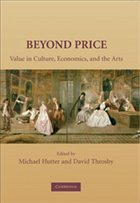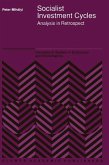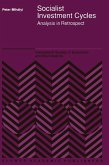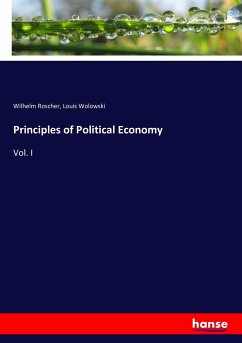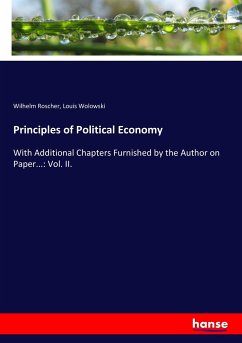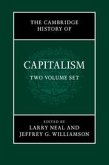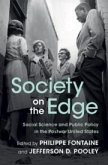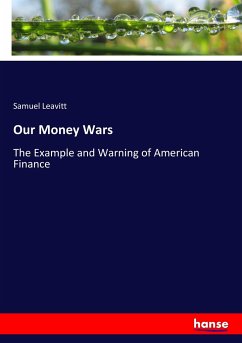Beyond Price
Value in Culture, Economics, and the Arts
Herausgeber: Hutter, Michael; Throsby, David
Beyond Price
Value in Culture, Economics, and the Arts
Herausgeber: Hutter, Michael; Throsby, David
- Gebundenes Buch
- Merkliste
- Auf die Merkliste
- Bewerten Bewerten
- Teilen
- Produkt teilen
- Produkterinnerung
- Produkterinnerung
Much recent discussion surrounding valuation of the arts and culture, particularly in the policy arena, has been dominated by a concern to identify an economic and financial basis for valuation of art works, arts and activities. This book moves beyond the limitations implicit in a narrow economic approach, bringing different disciplinary viewpoints together, opening up a dialogue between scholars about the processes of valuation that they use, and exploring differences and identifying common ground between the various viewpoints. The book's common theme - the tension between economic and…mehr
![Socialist Investment Cycles Socialist Investment Cycles]() Peter MihályiSocialist Investment Cycles39,99 €
Peter MihályiSocialist Investment Cycles39,99 €![Socialist Investment Cycles Socialist Investment Cycles]() Peter MihályiSocialist Investment Cycles59,99 €
Peter MihályiSocialist Investment Cycles59,99 €![Principles of Political Economy Principles of Political Economy]() Wilhelm RoscherPrinciples of Political Economy31,90 €
Wilhelm RoscherPrinciples of Political Economy31,90 €![Principles of Political Economy Principles of Political Economy]() Wilhelm RoscherPrinciples of Political Economy31,90 €
Wilhelm RoscherPrinciples of Political Economy31,90 €![The Cambridge History of Capitalism 2 Volume Hardback Set The Cambridge History of Capitalism 2 Volume Hardback Set]() The Cambridge History of Capitalism 2 Volume Hardback Set301,99 €
The Cambridge History of Capitalism 2 Volume Hardback Set301,99 €![Society on the Edge Society on the Edge]() Society on the Edge108,99 €
Society on the Edge108,99 €![Our Money Wars Our Money Wars]() Samuel LeavittOur Money Wars26,90 €
Samuel LeavittOur Money Wars26,90 €-
-
-
- Produktdetails
- Verlag: Cambridge University Press
- Seitenzahl: 334
- Erscheinungstermin: 10. Dezember 2007
- Englisch
- Abmessung: 231mm x 160mm x 25mm
- Gewicht: 635g
- ISBN-13: 9780521862233
- ISBN-10: 052186223X
- Artikelnr.: 22741971
- Verlag: Cambridge University Press
- Seitenzahl: 334
- Erscheinungstermin: 10. Dezember 2007
- Englisch
- Abmessung: 231mm x 160mm x 25mm
- Gewicht: 635g
- ISBN-13: 9780521862233
- ISBN-10: 052186223X
- Artikelnr.: 22741971
David Throsby is Professor of Economics at Macquarie University in Sydney, Australia. He has published widely in the economics of the arts and culture, and the relationship between cultural and economic policy. His research has focused on demand and supply in the performing arts, the role of artists as economic agents, cultural policy, culture in economic development, sustainability and cultural capital, theories of value in the arts and culture, and the economics of heritage conservation. He is a past President of the Association for Cultural Economics International, and is a member of the Editorial Boards of the Journal of Cultural Economics, Poetics, and the International Journal of Cultural Policy. Professor Throsby's most recent book, Economics and Culture, was published by Cambridge University Press in 2001, and has now appeared also in Spanish, Italian, Chinese, Korean and Japanese translations. He is also co-editor of the Handbook of the Economics of Art and Culture (2006). He is currently working on a book on the economics of cultural policy.
Michael Hutter and David Throsby; Part I. Origins of Meaning: 2. Creating
value between cultures: contemporary Australian Aboriginal art Terry Smith;
3. Entertainment value: intrinsic, instrumental, and transactional Richard
Shusterman; 4. Creating artistic from economic value: changing input prices
and new art Michael Hutter; Part II. The Creation of Value in Artistic
Work: 5. The creation of value by artists: the case of Hector Berlioz and
the Symphonic Fantastique David Throsby; 6. Art, honor, and excellence in
early modern Europe Elizabeth Honig; 7. Rubbish and aura: archival
economics Kurt Heinzelman; Part III. Continuity and Innovation: 8. Value in
Yolngu ceremonial song performance: continuity and change Steven Knopoff;
9. The ritual and the promise: why people value social ritual Lourdes
Arizpe; 10. 'More than Luther of these modern days': the construction of
Emerson's reputation in American culture 1882¿1903 Richard Teichgraeber;
Part IV. Appreciation and Ranking: 11. Quantitative approaches to valuation
in the arts, with an application to movies Victor Ginsburgh and Sheila
Weyers; 12. Confluence of cultural and economic values: three historical
moments Neil De Marchi; 13. Agreements of judgements: Masaccio and the
Chapmans Carolyn Wilde; 14. Time and preferences in cultural consumption
Marina Bianchi; Part V. Cultural Policies: 15. What values should count in
the arts? The tension between economic effects and cultural value Bruno
Frey; 16. The public value of controversial art: the case of the Sensation
exhibit Arthur Brooks; 17. Going to extremes: commerical and non-profit
valuation in the U.S. arts system William Ivey.
Michael Hutter and David Throsby; Part I. Origins of Meaning: 2. Creating
value between cultures: contemporary Australian Aboriginal art Terry Smith;
3. Entertainment value: intrinsic, instrumental, and transactional Richard
Shusterman; 4. Creating artistic from economic value: changing input prices
and new art Michael Hutter; Part II. The Creation of Value in Artistic
Work: 5. The creation of value by artists: the case of Hector Berlioz and
the Symphonic Fantastique David Throsby; 6. Art, honor, and excellence in
early modern Europe Elizabeth Honig; 7. Rubbish and aura: archival
economics Kurt Heinzelman; Part III. Continuity and Innovation: 8. Value in
Yolngu ceremonial song performance: continuity and change Steven Knopoff;
9. The ritual and the promise: why people value social ritual Lourdes
Arizpe; 10. 'More than Luther of these modern days': the construction of
Emerson's reputation in American culture 1882¿1903 Richard Teichgraeber;
Part IV. Appreciation and Ranking: 11. Quantitative approaches to valuation
in the arts, with an application to movies Victor Ginsburgh and Sheila
Weyers; 12. Confluence of cultural and economic values: three historical
moments Neil De Marchi; 13. Agreements of judgements: Masaccio and the
Chapmans Carolyn Wilde; 14. Time and preferences in cultural consumption
Marina Bianchi; Part V. Cultural Policies: 15. What values should count in
the arts? The tension between economic effects and cultural value Bruno
Frey; 16. The public value of controversial art: the case of the Sensation
exhibit Arthur Brooks; 17. Going to extremes: commerical and non-profit
valuation in the U.S. arts system William Ivey.

